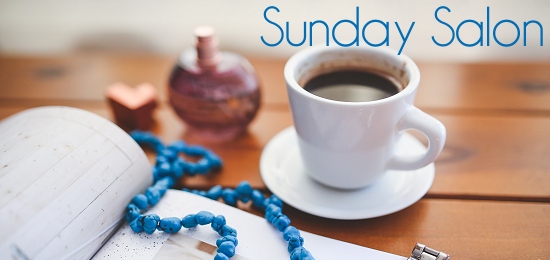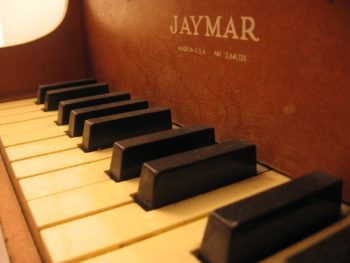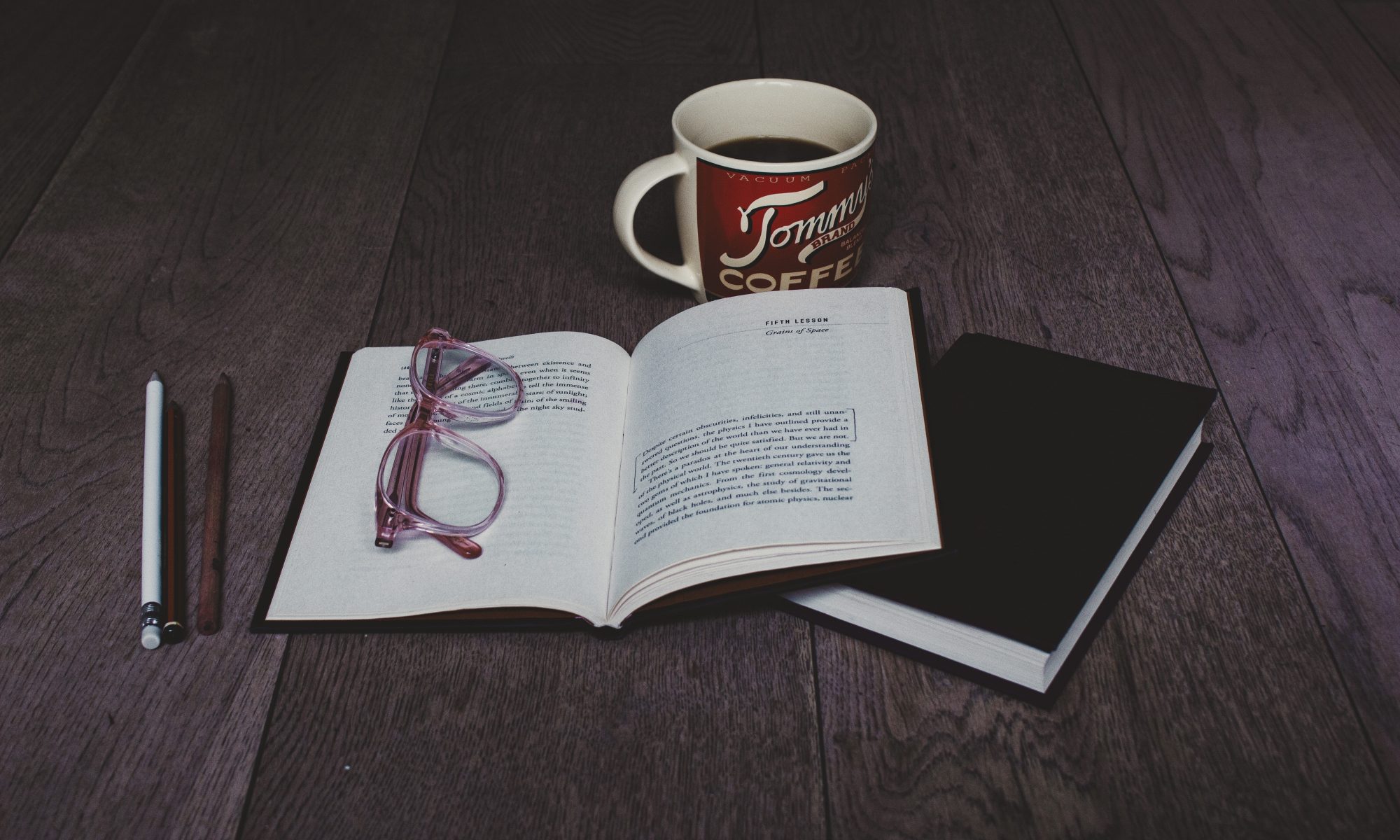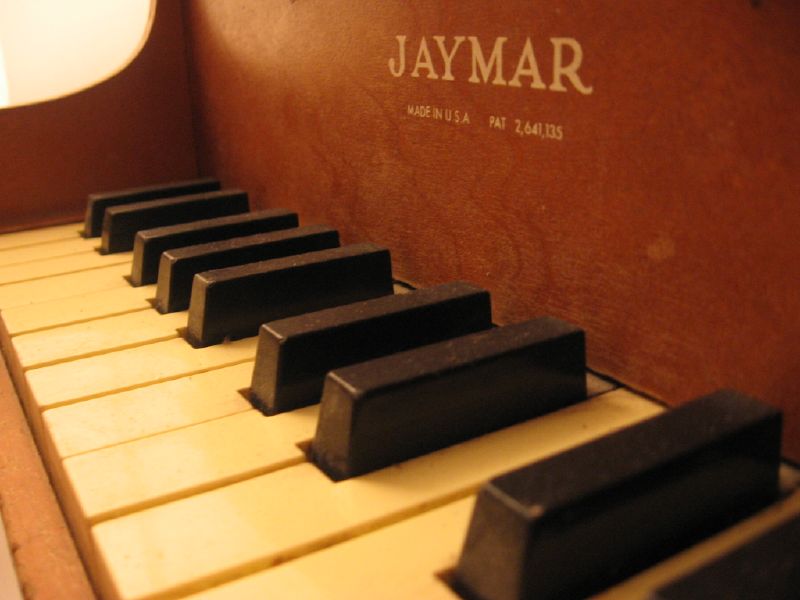
My love affair with keyboards began in 1959. I was three years old when my dad brought home an old Remington manual typewriter that had been discarded from his office, and put it on a desk in our attic. Sitting atop a mound of pillows for height, I tapped away for hours – at first putting only gobbledygook on the page, but then beginning to craft words that led to sentences that led to stories. The writer in me was born at that keyboard.
 But that same year, another keyboard entered my life, one that would turn out to be just as important in my creative future. A tinny little toy piano, with only 24 keys, every one of them I’m sure was painful to the ears of the adults in my family, but equally glorious sounding to mine. When my short stubby fingers weren’t busy on the smooth black keys of the Remington, they were pounding the “ivories” on that miniature upright.
But that same year, another keyboard entered my life, one that would turn out to be just as important in my creative future. A tinny little toy piano, with only 24 keys, every one of them I’m sure was painful to the ears of the adults in my family, but equally glorious sounding to mine. When my short stubby fingers weren’t busy on the smooth black keys of the Remington, they were pounding the “ivories” on that miniature upright.
As important as writing is to my creative well-being, music is the outlet for my emotions. I have always turned to the piano when I’m excited or in a celebratory mood, when I need a physical and mental challenge, when I want to lose myself in beautiful melodies and harmonies.
When I was a teenager, I spent many hours relieving typical teen girl angst by playing everything from Chopin Nocturnes to Simon and Garfunkle. Even now, when I’m troubled or sad, playing the piano is the ultimate healer.
Never have I been more aware of this than in the past month. On March 24, my mother died. Her loss has left such a deep void in my life it sometimes threatens to swallow me whole. A few days after her death, my son, daughter-in-law, and grandson Connor came to attend her funeral and spend a week with us. Connor, who has just started preschool, has recently fallen in love with his weekly music class. Called Music Together, it is a curriculum designed to foster children’s love of music as it brings together elements of song, story, and physical activities. Connor brought with him the CD of songs, and a music book complete with piano parts. He couldn’t wait for us to have “Music Time” together. We headed off to the piano, where he snuggled beside me on the bench, and we played and sang through all 25 songs in the book. This process became a daily ritual, sometimes even multiple times during the day. Whenever I asked Connor what he’d like to do for fun, “Music Time!” was always his enthusiastic answer.
In the ensuing hard days following my mother’s death, this little boy seemed to ken the way music could ease and soothe an aching heart. Some of the songs provoked laughter, while others brought tears. “Are you thinking about Mamoo ?” Connor asked once, when I couldn’t hide tears running down my cheek . The music touched places in both our hearts, lifted our spirits, and helped us forget our loss for a little while.
The act of making music engages the mind and the senses in a magical way. “Melody is an almost unconscious expression of the senses,” wrote composer Edward McDowell in his 1912 essay. “It translates feeling into sound. It is the natural outlet for sensation.”
Since my grandson went back home, my days seem long and lonely. I find myself wandering aimlessly through the house, lethargic, unable to focus. But then I remember the power of “music time” and wander over the piano. Through the fast-running scale passages of a Mozart Sonata, the precision of a Bach fugue, the gentle flow and intricate harmony of Debussy, I access the mystical union of sensation and intellect required to make music happen. My despair is lifted, and I walk away feeling easier in my soul.
“Music was my refuge,” Maya Angelou wrote. “I could crawl into the space between the notes and curl my back to loneliness.”
Here at my keyboard, I curl my back to loneliness and am comforted by melody, rhythm, and all the spaces between the notes where harmony and peace reside. It’s why my love affair with this keyboard will last my whole life long.
About Sunday Salon:
The Sunday Salon is a monthly column that explores the intersection of art and real life, looking at ways the creative arts inform, enhance, and invigorate our emotions, our intellect, and our experience of daily living.
About the Author: Becca Rowan
 Becca Rowan lives in Northville, Michigan with her husband and their two dogs. She is the author of Life in General, a book of personal and inspirational essays about the ways women navigate the passage into midlife. She is also a musician, and performs as a pianist and as a member of Classical Bells, a professional handbell ensemble. If she’s not writing or playing music you’ll likely find her out walking with the dogs or curled up on the couch reading with a cup of coffee (or glass of wine) close at hand. She loves to connect with readers at her blog, or on Facebook, Twitter, or Goodreads.
Becca Rowan lives in Northville, Michigan with her husband and their two dogs. She is the author of Life in General, a book of personal and inspirational essays about the ways women navigate the passage into midlife. She is also a musician, and performs as a pianist and as a member of Classical Bells, a professional handbell ensemble. If she’s not writing or playing music you’ll likely find her out walking with the dogs or curled up on the couch reading with a cup of coffee (or glass of wine) close at hand. She loves to connect with readers at her blog, or on Facebook, Twitter, or Goodreads.

